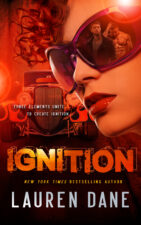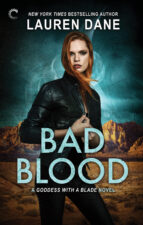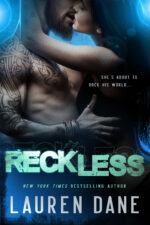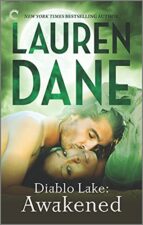|
Jan
11 2008 | ||
Okay so here’s the deal, a very real issue is being muddied in the middle of this war of personality. But the very real issue is what I’m most interested in as an author. I’d like to have a discussion about how to handle source material here. To try and learn from each other what we do and how we do it. Not just from a legal standpoint but from an ethical one because this isn’t an easy issue at the margins.
Participation is welcomed and encouraged! I think this is such a great place for a teaching moment about the business of writing and I’d really love to explore that on behalf of the 95% of us who try to do the right thing. But please let’s stay on topic. I’m not interested in re-hashing what’s happening between personalities – I want to talk about the *issue*
I use outside material when I write. By that I mean, I use research material and reference books. For instance I have a thing about Celtic mythology. I love it. But I love mythology in general so I’ve also used Indic mytho religious structure as well as Greek and Roman myth. I’ve used the Scotts version of Fae mythology and the Irish version as well as some Germanic mythos. It’s all fabulously interesting.
I also use city and state webpages, encyclopedias, treatises, and the gazillion law books taking up space on my shelves and taunting me with my student loan bills.
Generally, so far anyway, I haven’t cited the material because I tend to read books about mythology all the time and I use characters from mythology (like Aoife for instance) and give them a spin – also like Angra from Indic mythos from my early WK books. Certainly, the way I see it, if I used one source a lot, or actually took something word for word, I’d cite. That’s basic for me and I got that back in college.
Still though, the lines aren’t so clear to me out here at the margins. Should we then, as authors, put a list of books we read during the writing of our novels in an index? Not as cited material, which is different as I note above, but out of basic graciousness and appreciation to our bretheren who spend all that time writing these research books we use?
Where is that line? That’s what I’m interested in. I know where the line is in the middle and I know how to cite source material if I use it or quote it. But if we read a variety of creation myths to do background on a story but the story isn’t about creation myth so much and we’re using something that’s been passed down over and over and is in a multitude of places – do we acknowledge it anyway? I have like five books on baby names for instance, from back in the day when I was reproducing – I use them all the time to think up names. Do they need to be referenced in some sense?
What do you all think? Authors, where is your line? Will your line change now that this whole thing has surfaced? I must admit I’ve been thinking on it very strongly. Not because I’ve taken whole paragraphs’ worth of anyone else’s work but because I do a lot of outside reading for some of my stories and I want to do the right thing.





January 11th, 2008 at 3:12 pm · Link
You know this is an interesting line for me. I’m in the same boat. I read or research info in books or online, but have never cited my sources. But then I’m not lifting passages from these places either. I take what I learn and I apply it with a fiction spin. Am I wrong? It’s a bit scary, honestly! LOL.
January 11th, 2008 at 3:22 pm · Link
It’s an interesting line to draw.
If I use a particular reference for a fact or hard data, I cite it. That’s hard data and needs to be validated (sorry, the non-fic writer in me comes to the forefront).
If I read 20 books for research and let them stew in my mind, I may only make note of those that were of particular help or who had an unusual take that I made use of.
Baby name books? No – I consider their presentation to be IP but not the actual names within them.
If I have a person or group who acted as a resource, I always thank them.
It’s a hard line to draw in some ways but very common sense in others.
I don’t copy material anyway – my muse likes to play frappe in the blender of my imagination with everything I learn.
But I try to be gracious within reason.
I just encouraged an author I edit to give a thank you (her idea) to someone whose paper she paraphrased in a part of her story. She didn’t copy it but it was THE source for a character’s speeches. That is significant enough to be worth a thank you.
YMMV.
January 11th, 2008 at 4:25 pm · Link
It’s one thing to use a fact you’ve dug up, its another to use the entire page in your book.
I wouldn’t site any book I gleaned information from unless I was using a direct quote…which I wouldn’t do.
For me its cut and dried. 🙂
January 11th, 2008 at 4:48 pm · Link
I’ve used state and city websites, babyname books, etc… and I don’t site them. You’re getting general information that’s available to everyone. I’m not citing specific facts, more a feel for an area or.
I thank people if they give me direct help with a certain topic.
I don’t use specific quotes or data for books, or haven’t up to now. I usually read a bunch of sources, let it stew and see what comes out. Again, I’m not using another authors specific details. If I did, I’d have to cite them.
For mythology, I admit, I make up a lot of my own. Much easier that way. *g*
It is a interesting subject, Lauren. And I’m curious to see how other authors handle it.
January 11th, 2008 at 5:12 pm · Link
Ethics has never been, and never will be, a clearcut issue. I do my best to be as ethical as possible. When I catch myself in the act of doing something unethical through ignorance, I correct it. It’s the best I can do, primarily because as much as I want to be perfect, I’m not. 🙁
I don’t think citing every single instance of research is reasonable or feasible. I write what I know. Personal experience, reading, watching history shows, visiting places…all of this adds up to research. I can’t cite something I don’t know where it came from.
I might verify a fact, but it’s illogical to cite a book that didn’t give me the original information. Every single writer, no matter what their genre, does some type of research. Some of it can definitely be credited to a person or book, and should be noted. However, citing one’s personal growth and knowledge isn’t possible, and in truth it’s ludicrous.
If writers are suddenly required to start citing every thing they research, then I think we’re going to have a real problem. I write fiction, and I believe in meticulous research. When I write my historicals, I give the reader the feel for the era. But I think citing every research book is going to the extreme.
However, I do give credit to the owner of any “borrowed text” I include in my own work. In my upcoming release Dangerous, I put a line of Edgar Allan Poe’s work in the book, and the character references the line of poetry and that EAP wrote it.
What I find really interesting is how this new alleged plagiarism (and I say alleged because I’ve not seen all the evidence and I’m not qualified to make a distinction) has the potential to have every author looking over their shoulder, wondering if someone is going to come after them and accuse them of not citing something or stealing from another author.
It happened to Dan Brown and his DaVinci Code. Some of the things cited in that case were Brown’s use of green eyes for a character just like a character in the work Brown supposedly plagiarized. This could get really hairy. 😈
It’s important to do the right and ethical thing, but I don’t think we need to go to extremes to get there. OMIGOD, I just plagiarized Josh Bernstein!
Monica
January 12th, 2008 at 12:06 am · Link
I think if you want to stick to the issues and not “re-hash” anything, then you should refrain from calling it a “war of personality.” That seems fairly incendiary to me.
January 12th, 2008 at 1:16 am · Link
I’ve never cited any of my sources, although I’ve thanked individuals who gave me information. Most of the time, I draw from a jumble of old and new reading, and sometimes I do remember the exact wording of a passage.
As far as what’s plagiarism and what isn’t, it seems like we’re tightening the nooses around our own necks when we make the definition broad enough to include even paraphrasing. Quoting a significant passage directly requires a citation, however. But what’s a significant passage?
There’s also the question of whether the publisher would include a bibliography or even an author’s note. Some are more amenable than others. I would imagine if a bibliography required one more signature in the book, then the answer would be no.
I also don’t recall seeing footnotes in romance novels. I’ve seen them in historical novels, but not romances. I’m not sure I’d want footnotes in a romance, since I’m reading for emotion and not facts.
At any rate, this is apparently a wake-up call for all of us to be careful how we use material, even if we read it two years ago. The words coming out of our fingertips might be a little too close to the source’s for comfort.
January 12th, 2008 at 1:25 am · Link
I’m with you Jacquie, I DO NOT want footnotes in my romances.
And I don’t think publishers are going to be thrilled about including extra pages for citations, they’ll probably do it, but then we’ll be cutting off pages from our work and that will tick readers off. Less story to read.
January 12th, 2008 at 9:04 am · Link
Good question!
After thinking a bit . . . because it does boggle the mind . . .
I guess it would be so hard to cite resources when all we’ve learned our whole lives has possibly come from a book, no?
I say we should cite when we copy the content, not when we use our own interpretation of the content we learned.
January 12th, 2008 at 10:01 am · Link
Anna – When two sides – sadly believing the same thing at their base – argue back and forth and it becomes personal – that’s a war of personalities.
That’s not incendiary unless someone attempts to be, which I haven’t. That’s a basic statement of fact.
What I will refrain from, is being passive agressive. If I had something incendiary to say, I’d come out and say it. I have no need to because I find the actual issue far more interesting than petty bickering ON EITHER SIDE.
January 12th, 2008 at 1:56 pm · Link
Well, I actually used Plato’s description of Atlantis in an upcoming novella with Cobblestone. I had one of the characters recite Plato’s description and accredit it to him but that is the only instance I’ve ever used material in this manner. Usually, like everyone else, I get my research material from a wide variety of resources and blend it all together to form whole new ideas or to verify that I’m on the right track, whatever the case may be. Because like everyone else, I don’t want to look to the back of the book or the bottom of the page to look up citation notes to find out where I got that piece of information. It would ruin the whole fiction reading experience for me.
January 12th, 2008 at 2:15 pm · Link
Lauren:
I guess I don’t see it as a war of personalities, so I don’t see it as “a basic statement of fact.” By saying it is a war of personality or calling it “petty bickering,” I feel as if you are making accusations about other people’s behaviors… while maintaining that you want to talk about the issues. Making those statements while telling your readers to stick to the issues… well, it just gives me a slight feeling of ick.
It’s not a huge deal. I’ll still buy and read your books. And I understand your perspective a bit more now (after your comment). I simply disagree with you.